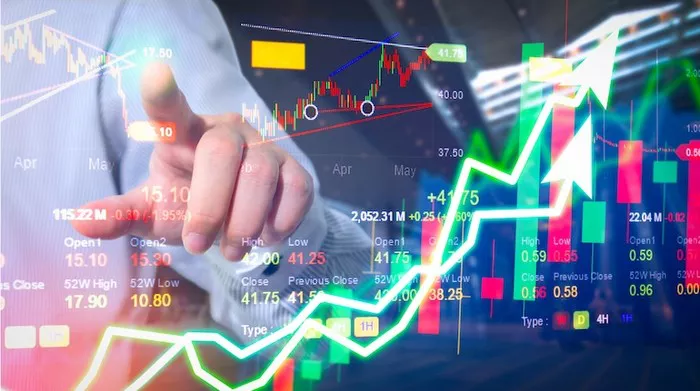Binance Futures is a popular platform that offers traders the opportunity to speculate on the price movements of various cryptocurrencies. While futures trading can be lucrative, it also carries inherent risks. One question that often arises among traders is whether it’s possible to lose more than the initial investment in Binance Futures. In this article, we will delve into this question, exploring the mechanisms of futures trading on Binance, the factors that contribute to potential losses, and strategies for managing risk effectively.
Understanding Binance Futures Trading
Binance Futures allows traders to enter into futures contracts on a wide range of cryptocurrencies, including Bitcoin, Ethereum, and other altcoins. These contracts enable traders to speculate on the future price movements of these assets without owning them physically. Binance Futures offers both perpetual contracts, which have no expiry date, and quarterly futures contracts, which expire on a specified date. Traders can use leverage to amplify their positions, enabling them to control larger positions with a smaller amount of capital.
Leverage and Margin in Binance Futures
Leverage is a fundamental aspect of futures trading on Binance, allowing traders to magnify their exposure to the market. While leverage can amplify potential profits, it also increases the risk of losses. When trading with leverage, traders are required to deposit a margin, which represents a fraction of the total value of the position. Binance Futures offers varying levels of leverage, depending on the cryptocurrency and the specific contract. Traders must understand the implications of leverage and margin requirements to manage their risk effectively.
The Risk of Liquidation
One of the primary risks associated with futures trading on Binance is the risk of liquidation. Liquidation occurs when the value of a trader’s position falls below the maintenance margin required by Binance. In such cases, Binance may initiate a forced liquidation of the position to prevent further losses. When a position is liquidated, any remaining margin in the trader’s account may not be sufficient to cover the losses, resulting in a negative balance. Traders must be aware of the potential for liquidation and take proactive measures to manage their risk accordingly.
See Also: How do continuous futures work?
Market Volatility and Price Swings
Cryptocurrency markets are notoriously volatile, with prices capable of experiencing significant fluctuations in a short period. This volatility presents both opportunities and risks for futures traders. While price swings can lead to substantial profits, they can also result in significant losses if the market moves against a trader’s position. Traders must be prepared to handle market volatility and implement risk management strategies to mitigate the impact of adverse price movements. Stop-loss orders and proper position sizing are essential tools for managing risk in volatile markets.
Risk of Slippage
Slippage refers to the difference between the expected price of a trade and the actual executed price. In fast-moving markets or during periods of low liquidity, slippage can occur, causing traders to incur losses that exceed their initial expectations. Slippage is a common risk in futures trading, especially in markets with high volatility or low liquidity. Traders should be mindful of slippage when placing orders and consider implementing risk management measures to minimize its impact on their trading results.
Brokerage Policies and Account Protections
Binance Futures has specific policies and procedures in place to manage the risk of negative balances and protect traders’ accounts. These may include automatic liquidation mechanisms, margin call notifications, and risk management features. Traders should familiarize themselves with Binance’s policies regarding margin requirements, liquidation procedures, and account protections. Understanding the brokerage’s risk management measures can help traders make informed decisions and mitigate the risk of incurring losses that exceed their initial investment.
Educational Resources and Risk Disclosures
Binance Futures provides educational resources and risk disclosures to help traders understand the risks associated with futures trading. These resources may include articles, tutorials, and risk warnings that highlight the potential for losses and provide guidance on risk management strategies. Traders are encouraged to review these materials carefully and seek additional information if needed. A thorough understanding of the risks involved in futures trading is essential for making informed decisions and managing risk effectively.
Regulatory Considerations and Investor Protections
As a leading cryptocurrency exchange, Binance operates under the regulatory framework of various jurisdictions. Regulatory considerations may impact the risk management practices and investor protections offered by Binance Futures. Traders should be aware of the regulatory environment governing Binance and understand the investor protections available to them. Regulatory bodies may impose certain requirements on exchanges to ensure fair and transparent trading practices, including measures to protect traders from significant losses. Understanding the regulatory landscape can provide traders with additional confidence and assurance when engaging in futures trading on Binance.
Conclusion
In conclusion, while futures trading on Binance offers opportunities for profit, it also carries inherent risks. Traders must understand the mechanics of futures trading, including leverage, margin requirements, and liquidation procedures, to manage their risk effectively. Market volatility, slippage, and brokerage policies are additional factors that contribute to potential losses in futures trading. By educating themselves about the risks involved, implementing risk management strategies, and staying informed about market conditions and regulatory developments, traders can navigate the complexities of futures trading on Binance with greater confidence and increase their chances of success in the dynamic world of cryptocurrency trading.


